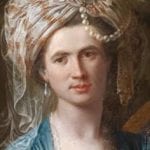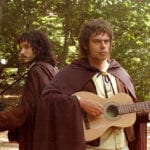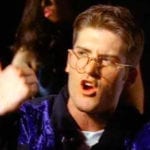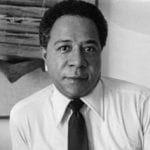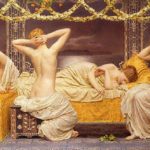 Crime
Crime  Crime
Crime  Technology
Technology 10 Hilariously Over-Engineered Solutions to Simple Problems
 Miscellaneous
Miscellaneous 10 Ironic News Stories Straight out of an Alanis Morissette Song
 Politics
Politics 10 Lesser-Known Far-Right Groups of the 21st Century
 History
History Ten Revealing Facts about Daily Domestic Life in the Old West
 Weird Stuff
Weird Stuff 10 Everyday Products Surprisingly Made by Inmates
 Movies and TV
Movies and TV 10 Actors Dragged out of Retirement for One Key Role
 Creepy
Creepy 10 Lesser-Known Shapeshifter Legends from Around the World
 Animals
Animals 10 Amazing Animal Tales from the Ancient World
 Gaming
Gaming 10 Game Characters Everyone Hated Playing
 Crime
Crime 10 Terrifying Serial Killers from Centuries Ago
 Technology
Technology 10 Hilariously Over-Engineered Solutions to Simple Problems
 Miscellaneous
Miscellaneous 10 Ironic News Stories Straight out of an Alanis Morissette Song
Who's Behind Listverse?

Jamie Frater
Head Editor
Jamie founded Listverse due to an insatiable desire to share fascinating, obscure, and bizarre facts. He has been a guest speaker on numerous national radio and television stations and is a five time published author.
More About Us Politics
Politics 10 Lesser-Known Far-Right Groups of the 21st Century
 History
History Ten Revealing Facts about Daily Domestic Life in the Old West
 Weird Stuff
Weird Stuff 10 Everyday Products Surprisingly Made by Inmates
 Movies and TV
Movies and TV 10 Actors Dragged out of Retirement for One Key Role
 Creepy
Creepy 10 Lesser-Known Shapeshifter Legends from Around the World
 Animals
Animals 10 Amazing Animal Tales from the Ancient World
 Gaming
Gaming 10 Game Characters Everyone Hated Playing
Top 10 Greatest Opera Singers
Opera has long been mistaken to be purely singing. Besides the orchestral music, acting, stage presence and interpretation of the music are what separates a diva from a group of singers. The voice in opera is usually split in to sopranos, mezzo-sopranos, tenors, baritones and basses. You might notice that sopranos and tenors make up 90% of the list. After all, it’s only over when the fat lady sings.
Dame Elisabeth Schwarzkopf was one of the greatest opera singers that lived to recording age. She performed her first opera Orfeo ed Euridice at age 13 in Germany. In an ironic turn of luck, her father was censored by the Nazis, resulting in her inability to study medicine. Her beautifully lyric sound made her ideal for Classical operas, such as Mozart and the operettas of Johann Strauss Jr. and Jacques Offenbach. Her lyricism also made her perfect for the German Lieds. Aside from the regular Schubert, she also shared affinity with the works of Hugo Wolf.
Nicolai Gedda, a Swede, was discovered after his performance of Mussorgsky’s Boris Godunov. After a short period as a moderately successful performer, his shot to fame with the aria “Mes amis, écoutez l’histoire” by Adolphe Adam. This most difficult tenor aria to date reaches an incredible high D, whereas other singers and tenors view the famous top C as the limit of the tenor’s range. Performing a great range of operas, he continues to perform due to his unusually long life. In 2003, he recorded Mozart’s Idomeneo, aged 78.
One of the first African-Americans to be accepted to be a “proper” opera singer, and a little unfortunately still known for her performances in the American opera (debatable) Porgy and Bess. Though the opera seems made for her, the other operas in her repertoire should not be forgotten. Her spin to genre of voice makes her extremely suitable for the rather melodramatic sopranos of Verdi and Puccini. That said, her rendition of Summertime from Porgy and Bess is still a highlight of the entire operatic repertoire.
Fritz Wunderlich probably has the sweetest and most lyric voice in all the tenors. The purity and cleanliness of his voice is instantly recognizable, and made him a superstar early on in his career. His light voice is a stark difference to the German tastes in music then; they preferred heavy Wagnerian voices. However, it allowed him to pursue the Italian operas of Mozart and Verdi. Most of the recordings of him are German translations of the text, due to a common norm of the time to perform in the local language. His work in Lied is perhaps only second to number 1.
Wagner’s operas sought to break away from the Italian/French traditions, and thus sat in a genre of his own. The singers demanded are also of a rather different variety. They are almost all of the dramatic strain in the Fach (voice categories), making them powerful and loud (some called in the Wagnerian Bark). These are qualities not associated with sopranos. Flagstad, however, has a beauty in the roughness of delivery, showing the dramatization of Wagner’s fairytales and yet maintain the dignity and gracefulness of a diva.
The most well-known, Pavarotti has crossed boundaries with his art, becoming a global superstar. His early performance of the aria Pour mon âme, with a breathtaking 9 high Cs gave him the title “King of the High Cs”. His early career included many operas, ranging from the bel canto-styled operas of Donizetti to the modern works of Richard Strauss. The year of 1990, however, would turn out to be one of the highlights of his career. The FIFA World Cup was held in Italy that year, and Pavarotti’s rendition of Nessun Dorma! was chosen to be the theme song of news coverage. It immediately appealed to thousands of non-music listeners, allowing that aria to become part of popular culture.
Responsible for bringing Pavarotti to fame, Sutherland is probably one of the most important sopranos of our times. Her early fame and popularity was due to her gifted high notes, reaching wonderfully soaring notes with ease. Whilst most coloraturas are merely bright and loud, Sutherland was able, when the drama required it, to insert some lyricism into the coloratura arias. A slight complaint some had with her was her unclear words, heeding which she studied the languages of Italian and German to better her pronunciation. She regularly added a wide range of operas into her repertoire, most successfully the bel canto operas. Without doubt, she deserved the nickname “La Stupenda.”
Performing more roles than any other tenor (136 as of July 2011), Domingo has taken a role of a Godfather for modern tenors. His decision to sing the title role of Verdi’s Otello drew much criticism from his management, who were inclined to believe Domingo’s voice was not suitable for the highly powerful and dramatic Othello. Nevertheless, the performance turned out to be legendary and the short opening speech Esultate! has become one of the greatest highlights of his career. Domingo’s versatile voice suits him to many roles, ranging from Wagnerian roles in Die Walküre to Verdi’s Rigoletto, to the operettas of Lehár and even Mahler’s song-cycles.
Her voice has a coarseness and impurity which most would not think to be desirable. However, her rough voice has a magical quality that causes so many generations of listeners to fall in love with it. Her vocal timbre can be described, in its barest, as grainy and strained. Perhaps it is this ‘imperfection’ that imbued a kind of soul into her singing, a uniqueness that no other can remake. Callas mainly focused on the bel canto operas. However, she is also extremely at home with the standard Italian repertoire, contributing much to the pantheon of opera recordings in the early days of commercial classical CDs. Whilst in her time she was embroiled in many scandals, she is remembered today for her wonderful voice. She is rightfully “La Divina.”
A note should be made here that this is my personal favorite singer, and that many others would naturally put him in the top 1. Fischer-Dieskau’s appeal stems from his intricate interpretations of all the roles and pieces he sings. This is especially true in his recordings of Lied, where he is unsurpassed (Look for Der Erlkönig on Youtube, there has not been a singer able to eclipse his performance). He seems to prefer lighter roles, such as in Lieds, Mozartian operas or Masses and other sacred pieces. However, his voice is capable of the heaviness demanded of most operatic baritones, as seen by his performances as Wolfram in Tannhaüser and Scarpia in Tosca. Boasting a huge repertoire, he sings music from Bach in the 1800s to works of his contemporaries. Whilst he is usually associated with Lied, his operatic œuvre is nonetheless impressive.

